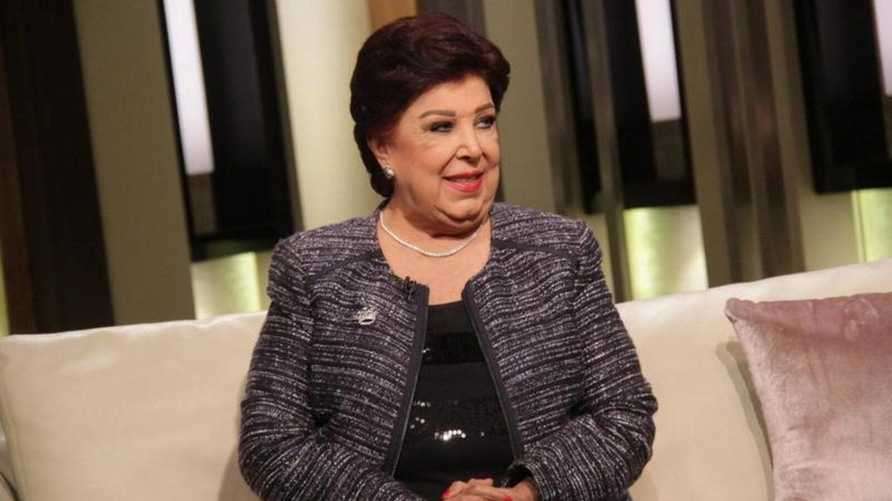Veteran Egyptian actress Ragaa El-Gedawy, whose career has spanned for over six decades, is currently receiving treatment from Coronavirus at the health isolation hospital in Ismailia.
A medical source at the Abu Khalifa Isolation Hospital in Ismailia told "Youm 7" that the 81-year-old actress has been transferred into the intensive care unit (ICU) Tuesday dawn, after the deterioration of her health condition.
The source added that El-Gedawy was transferred immediately to the ICU after she felt shortness of breath, headache, and circulatory collapse in the early hours of the morning.
[caption id="attachment_129049" align="aligncenter" width="892"] Ragaa El Gedawy[/caption]
Ragaa El Gedawy[/caption]
Ragaa El Gedawy's diagnose and reaction
Tributes poured in on social media, as soon as the news circulated, wishing the star a safe and healthy recovery.
El-Gedawy participated in Ramadan with TV series “Leabah El Nesian” (Oblivion Game).
The series also stars Dina El Sherbiny, Ali Qasem, Ahmed Dawood, Mahmoud Qabeil, Injy El Mokkaddem, and others.
The cast has tested for coronavirus as they have been worried about the possibility of being infected with the virus, but so far none of the samples have turned up positive.
Ali Qasem, who filmed with El Gedawy, took to twitter to advise the cast to self-isolate.
https://twitter.com/Alikassem88/status/1264608161857785856?s=20
More about coronavirus
The novel coronavirus was first reported in Wuhan, China, and has infected more than one million people and killed over 234,139 worldwide. It also hit several celebrities and top political figures around the world.
The virus is a new member of the Coronaviruses group, which was never identified in humans. The viruses’ family also includes Middle East Respiratory Syndrome (MERS-CoV) and Severe Acute Respiratory Syndrome (SARS-CoV), which cause illness ranging from the common cold to more severe diseases.
Coronaviruses are zoonotic, meaning they are transmitted between animals and people. Humans and animals such as mammals and birds can be affected by the disease.
The name coronavirus is derived from the Latin corona, meaning “crown” or “halo”.
On February 11, the World Health Organization (WHO) announced the official name for the disease caused by the new coronavirus is Covid-19, taken from the words “corona”, “virus” and “disease”.
In December 2019, an outbreak was reported in Wuhan, China. On 31 December 2019, the outbreak was traced to a novel strain of coronavirus, which was given the interim name 2019-nCoV by the World Health Organization (WHO), it was later renamed SARS-CoV-2 by the International Committee on Taxonomy of Viruses.
On March 11, the World Health Organization (WHO) declared coronavirus a global pandemic as the new virus has rapidly spread to more than 800,000 people from Asia to the Middle East, Europe, and the United States.
However, it announced the novel COVID-19 is still “controllable”.
“We are very concerned to achieve the alarming levels of the outbreak and its severity, as well as the alarming levels of inaction,” WHO Director-General Tedros Adhanom Ghebreyesus said at a press conference in Geneva.
“Now, COVID-19 can be categorized as a pandemic… we have never seen a pandemic spread due to the coronavirus,” Adhanom added.
“Describing the situation as a pandemic does not change the assessment of the threat posed by the Coronavirus,” the WHO director-general stressed.
[caption id="attachment_126884" align="aligncenter" width="300"] World Health Organization[/caption]
World Health Organization[/caption]
Transmission of viruses between humans happens when someone comes into contact with an infected person’s secretions, such as droplets in a cough.
Coronavirus can also be transmitted by coming into contact with something an infected person has touched and then touching your mouth, nose, or eyes.
It is known that older people appear to be more vulnerable to the effects of the emerging virus.
The virus caused complete paralysis in all activities and events with large gatherings worldwide due to concerns over the spread of the virus.
People across the globe partake in self-isolation for 14 days as an effective precautionary measure to protect those around them and themselves from contracting COVID-19.

How to protect yourself from Coronavirus?
– Wash your hands frequently with soap and water or use an alcohol-based hand rub if your hands are not visibly dirty as washing hands with soap and water eliminates the virus if it is on the hands.
– When coughing and sneezing, cover mouth and nose with flexed elbow or tissue – discard tissue immediately into a closed bin and clean your hands with alcohol-based hand rub or soap and water to prevent the spread of germs and viruses. If you sneeze or cough into your hands, you can pass the virus to other people that you have contact with.
– Eating fruits and vegetables that contain Vitamin C so that your immune system could be enhanced for better and be able to confront viruses.
– Avoid touching eyes, nose, and mouth as hands touch many surfaces, which can be contaminated with the virus. If you touch your eyes, nose, or mouth with your contaminated hands, the virus from the surface may infect you.
Accordingly, you need to keep surrounding surfaces clean and free of coronavirus. Make sure to keep all surrounding surfaces clean, even those that don’t usually cross minds like: keyboards, phone receivers, doorknobs, light switches, and remote controls.












